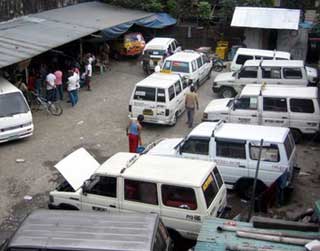Government Implements 13-Year-Old Phase Out Policy for Taxis
Over a thousand utility vehicle units are now somewhat in their resting places after the Philippine government implemented its 13-year-old phase out policy for taxi units. The country's Land Transportation Franchising and Regulatory Board (LTFRB) refused to grant "certification of franchise validity" for the said units.

Since the operators could not renew their franchises to continue plying their routes, they have no choice but to stop operating.
According to Coalition of Operator and Drivers of UV Express ATBP (CODEX)'s President Rosalino Marable, most of the affected operators are overseas Filipino workers and retired government and military personnel. They are now starting to feel the tight economic and financial pressures in their chosen field of livelihood. Some of them are now unable to send their kids to school, pay their standing loans and sustain their families daily needs.
In response to this as a sort of a measure, Land Bank of the Philippines (LBP) is now contemplating on a financing scheme to address the "refleeting" option for the affected members of CODEX. With it, UV express operators can apply for a loan.
At some point, this bit of news made me think about the real score in the new phase out policy. While the Philippines suffers from its lack of concrete measures to really strike a bite on the colorum (illegal, unregistered) vehicle units, another move is set out to partake in the growing dilemma for a solution. This age limit rule is not bad in a sense but without a contingency or maybe back up policy to take care of the banned old units in terms of possible disposal, storage or maybe recycling is an equally challenging task.
I was actually a little ecstatic when I broke the this news to a colleague. She got me on a very quick reply, "huh? so where will they store those old vehicle units?.. I don't think we got here a disposal company and policy, unlike in Japan". (Source: http://www.tempo.com.ph and Barako News)

